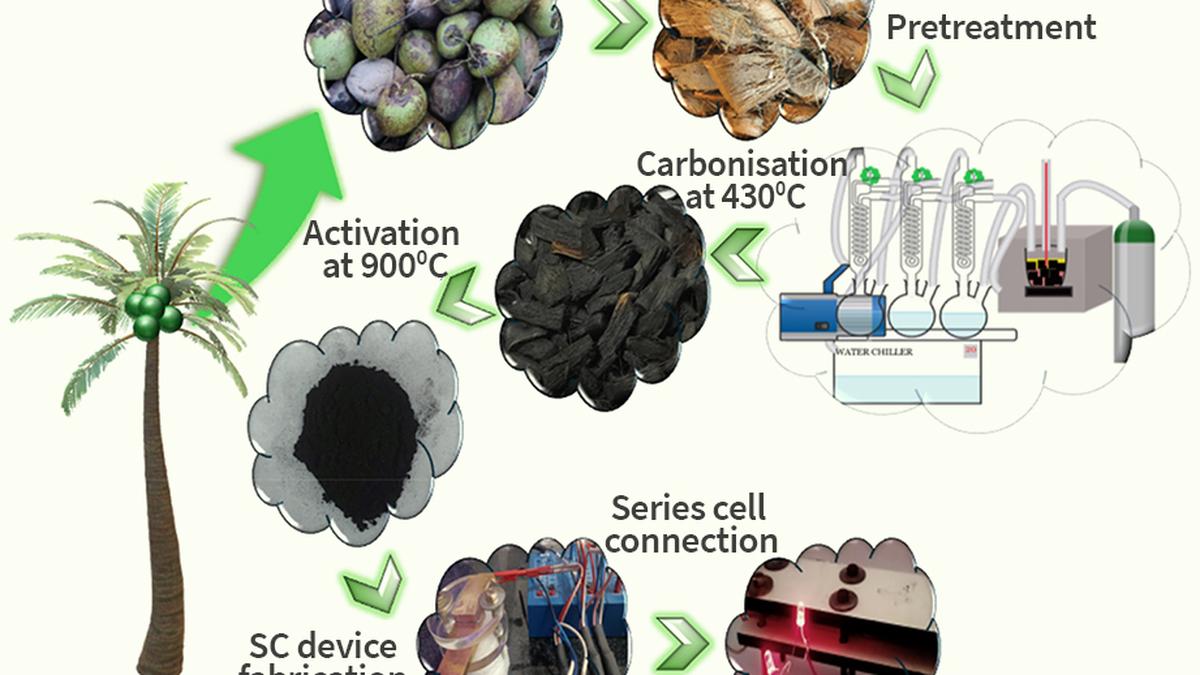
Researchers devise method to develop eco-friendly supercapacitors using activated carbon produced from coconut husks
The Hindu
Researchers devise method to develop eco-friendly supercapacitors using activated carbon produced from coconut husks
The researchers of the Government College for Women, Thiruvananthapuram, have devised a method to produce activated carbon, suitable for supercapacitor fabrication, from coconut husks, a major agricultural residue in Kerala.
The coconut husk biowaste-derived activated carbon holds immense promise for sustainable and efficient green solutions for high-performance supercapacitors due to its availability, low cost, and eco-friendly nature.
Supercapacitors, with significantly higher capacitance and energy storage capacity than conventional capacitors, have emerged as a vital component in the quest for sustainable energy storage solutions. But, the search for an ideal supercapacitor electrode material has been a significant challenge.
The research team, led by Xavier T.S., Assistant Professor, Department of Physics and including Merin Tomy, Ganesh S.G., Anu M.A., and Sreelakshmi S.R., found the prototype supercapacitors made of coconut husk-derived activated carbon to be four-times more efficient that the existing supercapacitors.
The findings have been published in American Chemical Society’s peer-reviewed Sustainable Resource Management Journal.
The team had leveraged the innovative microwave-assisted method designed at the Centralised Common Instrumentation Facility (CCIF) at the college.
According to Dr. Xavier, activated carbon produced in this manner, utilising microwave technology, is relatively inexpensive and exhibits exceptional supercapacitor capability. The innovative microwave-assisted method has also opened new avenues for the production of activated carbon, which is under consideration for an Indian patent.

Andhra Pradesh MPs have turned puppets in the hands of Prime Minister Modi, alleges APCC chief Sharmila. Accusing them of not fighting for the cause of people of the State, she cites as examples the unfulfilled promises such as Special Category Status, special package for backwards regions, among others.

India’s failure to tap its heritage potential highlighted at Mysore varsity’s Foundation Day lecture
Entrepreneur Harish Shah emphasizes India's untapped heritage potential at University of Mysore Foundation Day lecture.





















 Run 3 Space | Play Space Running Game
Run 3 Space | Play Space Running Game Traffic Jam 3D | Online Racing Game
Traffic Jam 3D | Online Racing Game Duck Hunt | Play Old Classic Game
Duck Hunt | Play Old Classic Game









